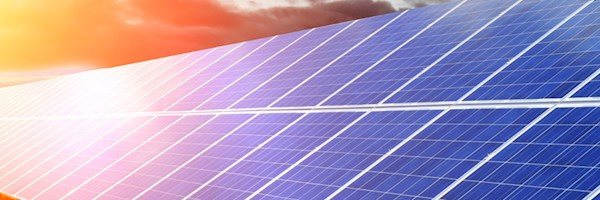Ah for the days when the questions we asked were the important ones: will Bafana Bafana score an own goal? Will the Boks remember to - you know - run the ball?
Sad, but those days are gone, and now we’re worrying about more fundamental things - like whether we’ll even have the power to watch the game on TV.
And whether we can afford to think about going off the grid.
“Actually, it isn’t really practical for us all to go off the grid yet, because the technology for storing energy is still quite limited,” said Felix Meyburgh of Knysna’s XSun Solar Energy. “In theory, the fact that we have a national grid works in everyone’s favour because it overcomes the challenges of supply and demand by balancing production in one part of the country with what’s being used in another.”
But, of course, this isn’t happening as it should in South Africa - for various reasons which include both capacity and the state of the grid - which is why Eskom is forced to implement cuts in supply from place to place and from time to time.
In the long run, said Felix, the world is going to have to rethink the grid altogether - and here he pulled out Michael Grunwald’s September 18th, 2014 article in Time magazine: The Case for Staying Connected (“We don't need to ditch the grid. We need to fix the power business”) - but in the short term, converting at least a part of your home supply to alternate energies makes sense both from an economic perspective, and for the good of the planet.
You don’t have to dive deeply into your bond straight off, though: Felix recommended that you begin by reducing your demand.
“The three big ones are the hot water supply, the stove, and the fridge,” he said. “Lighting doesn’t actually use much power at all.
“Naturally you should install a solar geyser, because heating the water uses the most power in most houses. But if you change your old fridge - which could be drawing as much as 300 watts - for one of the new AAA rated ones, you’ll see that it uses only a single unit a day. They are a bit more expensive (from about R 8,500 upwards), but it’ll pay for itself in savings within three or four years - even if you are getting your electricity from the grid.”
When it comes to the cost of installing solar power, he said, it’s impossible to provide a guideline since every home has its own requirements. But he did provide some comparative pricing based on how many appliances you’ll be able to run with the equipment you buy. The estimates below are based on the number of solar panels in each system, and include VAT but exclude installation costs (which should be relatively small in relation to the cost of the equipment):
· Basic system: 1 x 24 volt, 240 watt panel, with a regulator, two 12-volt, 102 amp-hour batteries, and an inverter - all prewired to a direct current (DC) switchboard: R 17,500. This system will run the LED lights in your home, and will give you four hours running time on your computer, as well as three hours on your LED TV. Over a period of ten years, it should save you an average of R 240.00 per month against buying from the grid.
· Example 2: 4 panels, 12 batteries (12-volt, 400 amp-hour), regulator, inverter, and switchboard: R 56,700.00. Besides running all your lights, this system should also run an economy fridge and a 900 kW kettle, and provide six hours running time on your computer. It should save you up to R 800 per month on your electricity bills.
· Advanced: a computer-controlled system of between 8 and 24 panels, with a 3- or 6-kW grid-tied inverter (which is suitable for selling electricity back to the grid, and which cycles in perfect synch with the grid - so you’ll never notice any changes when the supply switches from grid to solar). Such a system would usually cost between R 75,000 and R 200,000, and you could expect to save up to R 2,000 per month on your electricity bill.
Felix is excited about the future of power generation in South Africa. Citing Energy Forecast Online’s Interview with Eddie O'Connor, CEO of Mainstream Renewable Power (an Irish company that has invested in various wind generation projects in the Northern and Eastern Cape Provinces), he said that Eskom’s current woes could provide South Africa with the opportunity it needs to rethink the grid - with renewables playing the major (preferably only) role.
But in the meantime, every one of us is going to have to do what we can to minimise our demand,” he said.
